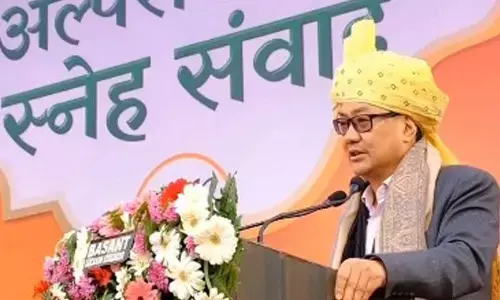Relationship: Beyond monogamy

Beyond monogamy, there is a broad spectrum of alternative relationship types, each with its own dynamics and difficulties. In the world we live in today, relationships and love have different meanings
Beyond monogamy, there is a broad spectrum of alternative relationship types, each with its own dynamics and difficulties. In the world we live in today, relationships and love have different meanings.
A fascinating trend that has gained prominence is the propensity for people to engage in multiple romantic relationships at once, even when they are committed to a primary spouse. The human heart yearns for exploration, thrills, and interesting experiences in the world of romance and love.
Accidental encounters, committed relationships, and secret rendezvous have long been a part of the fabric of human relationships. Although many nations still adhere to the conventional ideals of monogamy and committed relationships, there is an undeniable allure to embarking on romantic experiences outside of these constraints.
Taking part in this fascinating investigation into the realm of romantic adventures that calls for introspection, raises moral questions, and uncovers the depths of human desires. The term “counting loves in the shadows” describes the practice of concealing many romantic or sexual relationships, frequently as a result of cultural expectations and stigmas associated with non-monogamy. When both parties are aware of and agree to the arrangement, ethical non-monogamy is a notion that is closely related to it. Boundaries, communication, and trust are essential elements in these kinds of partnerships.
“Given shifting cultural dynamics and evolving attitudes regarding partnerships, it’s not unexpected that individuals are more receptive to the idea of supplemental partners, often referred to as “side hustles. While some people might object, others find comfort and satisfaction in expanding their amorous horizons.” says Sybil Shiddel, Country Manager, Gleeden, India.
When Love Gives You Lemons Squeeze the Statistics
In some capacity, non-monogamous relationships are practiced by up to 49 per cent of men and 60 per cent of women, according to a recent Gleeden survey. These numbers highlight how much the public’s perception of love and devotion has changed throughout time. Surprisingly, 41 per cent of people in Kolkata, 45 per cent in Delhi, 34 per cent in Mumbai, and 45 per cent in Bangalore practice having more than two partners at once. The connections between the two cities are astounding, with 49 per cent from Patna, 48 per cent from Indore, and 45 per cent from Jaipur.
Cubed and squared love
Enter the polyamorous community, where relationships aren’t constrained by accepted social mores. With a variety of partners, this group simultaneously searches for and develops deep ties with them. Polyamory places a strong importance on open communication, consent, and emotional honesty in order to promote moral and satisfying relationships. Tier 1 Cities frequently fall short of Tier 2 Cities in competition because of the glaring differences in their objectives and aspirations. While people in Mumbai, Kolkata, Delhi, and Bangalore choose 34 per cent, 41 per cent, 45 per cent, and 45 per cent, respectively, 33 per cent from Guwahati, 35 per cent from Hyderabad, and 52 per cent of Jaipur inhabitants want more than three partners simultaneously.
Expectations versus Anticipation
3It’s true that romantic adventures can spice up one’s love life, but it’s vital to remember that open partnerships don’t always result in happiness. In order to ensure that everyone feels respected, appreciated, and fulfilled, each individual and each couple must manage their unique journey. Constant communication, setting clear limits, and regular check-ins are still essential for successful alternative relationship dynamics. Given these statistics, 57 per cent of Tricenarians and 51 per cent of Millennials have experienced many relationships.
“It’s important to recognize that everyone has unique requirements and interests. While some people might gain a lot from trying out different romantic relationships, others might thrive in the stability of monogamy. It is ultimately up to each person to select the kind of love that brings them happiness, joy, and, of course, the occasional crazy side gig.” Shiddel adds.




